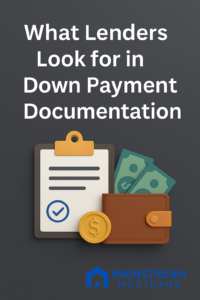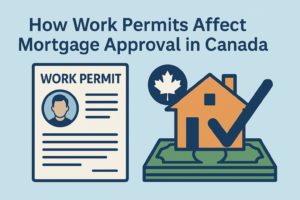By Avaljit Sandhu – Mortgage Broker in Winnipeg, Dominion Lending Centres
Why Your Down Payment Documents Matter
When you’re buying a home in Winnipeg or anywhere in Canada, your down payment plays a key role in getting approved for a mortgage. But it’s not enough just to have the money—you need to prove where it came from.
Mortgage lenders are required by law to ensure your down payment is legitimate, not borrowed, and compliant with anti-money laundering rules. If your documentation is unclear or incomplete, it can delay or even stop your mortgage approval.
What is Acceptable Down Payment Documentation?
1. Bank Statements (90-Day History)
Lenders usually require three months of bank statements showing your down payment savings. This helps them confirm:
-
Where the money came from (salary, savings, etc.)
-
No large unexplained deposits
-
You haven’t borrowed the down payment
💡 Tip: Make sure your statements show your name, account number, and consistent saving habits.
2. Gift Letters (If Money is Gifted)
If a family member is gifting you money, you must provide:
-
A signed gift letter confirming it’s not a loan
-
Proof of the gift amount deposited into your account
Gifts must come from an immediate relative (parent, sibling, etc.) and must be traceable.
3. RRSP Withdrawals (Home Buyers’ Plan)
If you’re using your RRSP under the Home Buyers’ Plan, you’ll need:
-
Proof of RRSP ownership
-
Withdrawal documents
-
Evidence the funds have been moved into your account
4. Sale of Assets
Selling a car, stocks, or other property to fund your down payment? You’ll need:
-
A copy of the bill of sale
-
Proof of deposit into your bank account
-
Supporting documents for asset ownership
5. International Transfers
Newcomers to Canada or those receiving funds from abroad must provide:
-
A clear paper trail from the originating account
-
Currency conversion receipts
-
Bank letters if needed
Lenders want to ensure international funds comply with Canadian banking laws.
What Won’t Work as Valid Proof?
Lenders may reject your application if:
-
You use cash deposits with no explanation
-
There are large, random transfers with no paper trail
-
Your statements are missing pages or are screenshots from apps without names or account numbers
Avaljit’s Pro Tip
As a mortgage broker in Winnipeg, I recommend reviewing your down payment docs before you put in an offer. If you’re unsure whether a document is acceptable, I can review it with you—no commitment needed.
Why It’s Important for Mortgage Approval
Lenders use your documents to verify:
-
You’re not borrowing the down payment (unless it’s a cashback or flex-down mortgage)
-
You can cover closing costs
-
Your savings history shows financial responsibility
Getting this step right means faster mortgage approval and less stress during closing.
FAQ – Down Payment Documentation in Canada
Q1: Do I have to show 90 days of savings?
Yes. Lenders require a 90-day history to confirm the money is yours and wasn’t recently borrowed.
Q2: Can I use cash for a down payment?
No. Cash deposits without documentation are not accepted by lenders. All funds must be traceable.
Q3: What if I get a gift from a friend?
Only immediate family members can give you a down payment gift that lenders will accept.
Q4: What if I’ve moved funds between accounts?
Provide statements from both accounts to show the full money trail.
Q5: How much down payment is needed in Canada?
-
5% minimum for homes under $500,000
-
10% on the portion from $500,001 to $999,999
-
20% or more if over $1M or for rental/investment properties
Conclusion
Getting your down payment documents in order is one of the smartest steps you can take when preparing to buy a home. It builds lender trust and speeds up your mortgage approval. Whether you’re a first-time buyer in Winnipeg, a newcomer to Canada, or just looking to refinance, proper documentation sets the foundation for a smooth process.
Need help reviewing your documents? Reach out—I’m here to guide you every step of the way.




